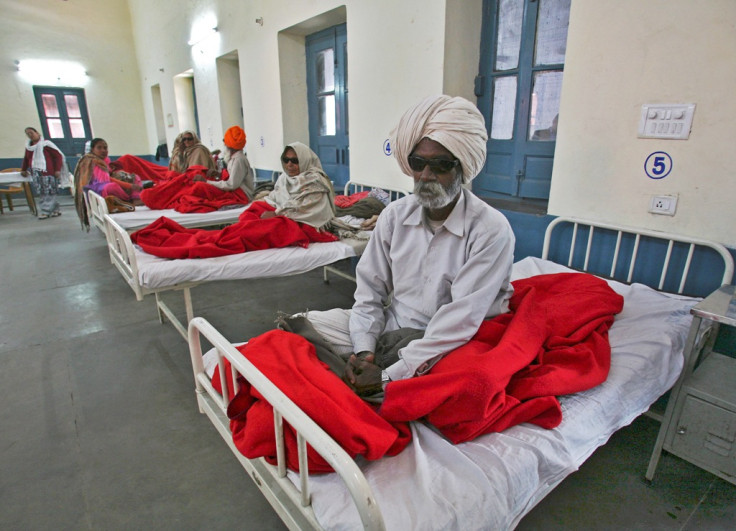Ketamine crackdown would turn hospitals into torture chambers

Some questions are so easy that the answers are obvious. For example, drug abuse is bad, so drugs of abuse should be banned. Another example - everyone should be able to have emergency surgery if they need it.
But what happens when the two obvious answers contradict each other?
Who would argue about emergency surgery? But emergency surgery without an anaesthetic doesn't sound like such a good idea, does it? And yet for billions of people around the world, access to essential surgery is limited or just not available. In places where clean, running water, or a constant supply of electricity are pipe dreams, how could anaesthesia be given safely?
Although modern anaesthesia in the developed world relies on complex and expensive technology, there is a safe, low-tech alternative – ketamine.
First developed in the 1960s, ketamine can be given by injection, and has less effect on breathing or blood pressure than many anaesthetics. For this reason it is often used at the scene of accidents before patients get to hospital, and in other emergency situations. It has a particular role in the management of chronic pain conditions, and in the management of severe asthma. However when used as the sole anaesthetic it may have unpleasant side effects such as hallucinations and delirium, so it is not used in the majority of cases in High Income Countries. However in Low and Middle Income countries, when there is no alternative, its use can literally be vital.
Sadly those same side effects have also led to ketamine being used as drug of abuse – the dissociative and hallucinogenic effects being the main aim. Ketamine is a difficult drug to make, so almost of the supplies being misused have been diverted from supplies manufactured legitimately for human or veterinary use. Some countries, such as China and India, have particular problems with ketamine abuse, but they are also countries responsible for some of the largest quantities of manufacture.
Six weeks ago, the World Health Organisation Executive Board approved a draft proposal making global access to safe surgery and anaesthesia a health priority for the world. This was a remarkable and exciting day, with universal support, and no opposition. Ketamine is clearly going to play a vital role in delivering this.
Safer surgery and anaesthesia is essential to many other WHO priorities, for example in maternal and child health; there can be no meaningful improvement here unless safe caesarean delivery is available when otherwise mother and/or child would die.
But recent efforts to control drug abuse on a large scale, and more specifically the campaign to curb the use of ketamine in China and other countries, may set this worthy cause back. At the UN Commission on Narcotic Drugs in Vienna, China attempted (and not for the first time) to make ketamine the subject of international scheduling, essentially putting it beyond the reach of those billions of people for whom there is no alternative.
Pros vs cons
At the same meeting which saw the endorsement of access to global surgery, the WHO also noted that the benefits that ketamine offered for anaesthesia in the developing world that outweighed the risks of its abuse, and recommended that scheduling not happen. A massive international lobbying effort from anaesthetic organisations, health and other charities, followed and thankfully China withdrew its proposal, at least for now.

The UK government recognizes that ketamine abuse is a problem in the UK, with long-term physical as well as psychological consequences for those that take it. However it also supports ketamine's important role in those parts of the world where it may be the only safe anaesthetic available.
So here in the UK, ketamine remains available to those patients who need it – for accident victims, burns patients, those with life threatening asthma and patients with complex pain problems. In Low and Middle Income Countries ketamine remains available when the alternative may be pain and suffering without surgery, or even surgery without anaesthesia.
So while it may seem obvious to ban drugs of abuse, to place them completely beyond temptation, in reality to do so would also place severe limits on the ability of doctors and nurses to relieve pain and distress. Many of the drugs so commonly abused such as heroin and cocaine, were originally used, and continue to be used safely as anaesthetics. The drug used almost certainly at the start of most anaesthetics in the developed world – propofol - was famously mis-used fatally by Michael Jackson.
Drug abuse is a highly complex issue, and the answers to it equally complex and contested. But simply banning the drugs involved has never worked, and the consequences of such bans are wide-reaching and too awful to consider – nobody in the UK would consider surgery without anaesthesia acceptable, and we should not make decisions that would condemn the world's poor to face that dilemma.
Dr Andrew Hartle is President of the Association of Anaesthetists of Great Britain and Ireland, which lobbied nationally and internationally in favour of the WHO EB resolution on global surgery and anaesthesia, and against the UND CND proposal to schedule ketamine.
© Copyright IBTimes 2025. All rights reserved.





















